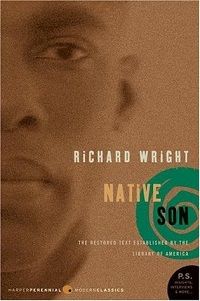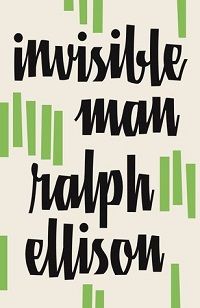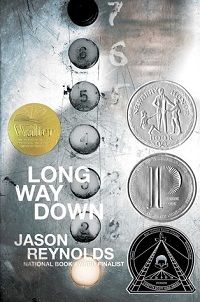Some of us read books for entertainment. Sometimes, we think we are reading a book for entertainment and instead find ourselves stumbling on to a reading path, with the urgency to learn more. Like Dear Justyce by Nic Stone. I picked it up, thinking this would be a good topical read. No one warned me about the books within books. No one warned me of the never-ending reading path ahead.
I am a white woman who lives in Sydney, Australia. I will never understand what it is like to be Black in the United States of America. I will never understand what the hell is going on with our society. I have been aware of racism in our communities and I have spoken out against it, but I will never understand. Although I may never understand, that won’t stop me from wanting to learn how to do better.
Why did I pick up Dear Justyce? I think it was the right book and the right time. The title caught my attention. Current affairs encouraged me to broaden my perspective, especially on issues like racism. The subject in the blurb made me think. And I was also looking for a book to share with my kids, so they too could learn to do better. Understanding starts with empathy.
It Started With Dear Justyce
Stone does not hold back in her book, Dear Justyce. Nor should she have to. This is a story aching to be told. Screaming. While it is fictional, it pulls from the experiences of boys Stone has met personally; boys whose lives are synched perfectly with the main characters in her book.
Dear Justyce starts with an incarcerated teen, Quan, who is writing letters to his friend Justyce about his experience in the American prison system. Justyce was also a character in Stone’s earlier book, Dear Martin, however, I would not consider this a sequel. It is a stand-alone of Quan’s experience and Justyce is a side character in the story. An excellent and well-rounded character, but a side character nonetheless.
Quan is arrested and charged for shooting and killing a police officer. While he awaits trial in his holding cell, over a ridiculously long time, Quan reveals his story through letters to Justyce and flashbacks of his own. We, the readers, have front row seats in the story of Quan’s life; from troubled childhood to clueless teachers and prejudiced police work. Dear Justyce is a forthright lesson in privilege, shining the spotlight directly on the flawed system already working against anyone who dares to ask for better.
I cried big ugly tears reading this book. The ongoing racism within legal systems is a known problem. I have heard about it and read about it in my studies in sociology and legal practice. But all of my reading and experience has always come from a place of privilege; one where I can comfortably put the book down and continue with my day. Dear Justyce hit the right note with me. This was the story of a child who was never told the options available or even how to ask if there are options.
Now, I know this is not the first book to broach the topic, but Stone took this revelation for me a step further. She gives us the literature that came before this one. She listed the books that have been screaming for attention before Dear Justyce. I was simply too privileged to see.
A Dear Justyce Reading List

The first ‘book within the book’ was Native Son by Richard Wright. Quan mentioned it in a letter to Justyce. I had never heard of it, but I have learned it is a significant work of African American literature. When he first writes to Justyce, Quan mentions their mutual friend: Doc. Doc is Quan’s tutor during his incarceration. He was also Justyce’s teacher during high school. It is Doc who assigns various reading material to Quan, encouraging him to reflect on his identity and society. At first, it feels like any other ‘school assigned’ list of reading. However, Doc is no ordinary teacher. He is a caring, wise, and experienced man. And Doc knows exactly the response he seeks from Quan:
“Last time he was here, Doc brought this book for me to read. Native Son, it’s called, and it’s about this black dude who accidentally kills this white girl and then shoves her dead body in a furnace and starts a whole plot to try and blame her white boyfriend (shit’s brutal, but roll with me). When he gets found out, he runs and tells HIS girl, but then panics and winds up killing her too.”
When I first read this section in Dear Justyce, I thought “WTH? Why would you want an incarcerated Black teen reading this?” Quan continues to discuss Native Son, relating to the inability to see “different choices” in life. And that was when my privilege smacked me in the face and said, “Go and read Native Son.”
Holy crap, it’s a tough read. But I am so glad I did. If I were in the same position as the main character, would I make different choices? I sincerely hope I would, yes! However, I am in a completely different position in life. I have had different options (and hurdles) presented to me.

Stone’s reading list didn’t stop there. In fact, I do not understand anyone who thinks they can read one book about racism and suddenly become a hero of people of color. Not long after my introduction to Native Son, Doc asks Quan to compare it with Invisible Man by Ralph Ellison. Like Native Son, Ellison brings a discussion on Black existentialism to a very honest reflection on early 20th century USA. I found the novel raw yet insightful; highlighting the contradictory ‘invisibility’ felt by the Black narrator which is a selective ignorance on behalf of the white community. The narrator is only invisible when it is convenient for white people to benefit.
Stone incorporates these books within her own book to drive home the point. There is an unrelenting theme of racism, which continues to roll in society, building in momentum and emotion. This theme is unavoidable. But there is more: Stone’s selection of books also shout “Representation Matters!” By listening to Stone’s advice, I am changing my reading behaviour. You cannot read Dear Justyce and simply stop there. A single book is not going to mean you now understand the “truth” of others.

Stone’s reading list is an invariable road of history, hope, and despair. There is a natural comparison of Native Son with Invisible Man. She mentions a notebook Justyce gave to Quan filled with Martin Luther King letters, which was the core of Stone’s earlier book Dear Martin — add that to my reading list. She mentions To Kill a Mockingbird by Harper Lee; at least I have read this before and am happy to read it again. And then there’s Long Way Down by Jason Reynolds, a verse novel detailing the expectations, fears, and relationships of Black teens. Another reading path to follow.
Stone also includes books that do not initially feel like they are related to Dear Justyce: Alice’s Adventures in Wonderland, with the Queen of Hearts demanding Alice’s beheading; I especially like this for how it highlights the absurdity of legal interpretation, a topic raised in Catch-22 by Joseph Heller. It is another story highlighting a twisted system of procedure, designed to lead the characters into failure.
Part of me is ashamed that I had to rely on someone to give me this reading list. We should not be relying on those deep in the battle to do our homework for us. There are no heroes for simply picking up Dear Justyce at the local bookstore. I do not deserve praise for paying enough attention to note the story’s reading path, though I am very grateful for it.
However, I am a changed person. A good book will do that to you. Sometimes, it can simply be a good book that entertained you at the right time in life. Sometimes, it is the gift of books within books. To change how you read and give you different choices on your reading path ahead.
Nic Stone’s Reading List for Dear Justyce:
- Dear Martin by Nic Stone
- Native Son by Richard Wright
- Invisible Man by Ralph Ellison
- To Kill a Mockingbird by Harper Lee
- Long Way Down by Jason Reynolds
- Alice’s Adventures in Wonderland by Lewis Carroll
- Catch-22 by Joseph Heller
If you are looking for more books like Dear Justyce and Dear Martin, fellow Book Rioter Emily has a list for you here.











